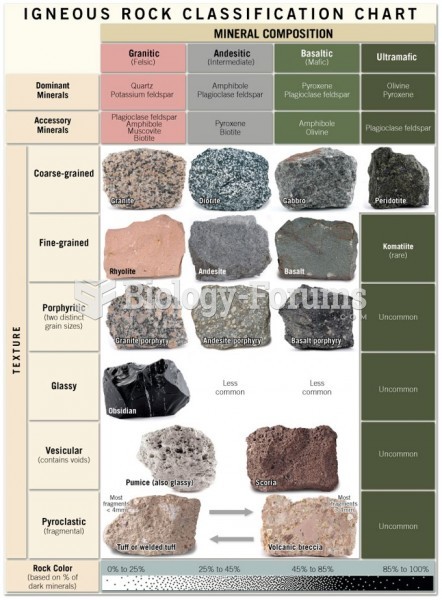|
|
|
Nearly 31 million adults in America have a total cholesterol level that is more than 240 mg per dL.
More than 2,500 barbiturates have been synthesized. At the height of their popularity, about 50 were marketed for human use.
Bacteria have flourished on the earth for over three billion years. They were the first life forms on the planet.
Complications of influenza include: bacterial pneumonia, ear and sinus infections, dehydration, and worsening of chronic conditions such as asthma, congestive heart failure, or diabetes.
The Centers for Disease Control and Prevention has released reports detailing the deaths of infants (younger than 1 year of age) who died after being given cold and cough medications. This underscores the importance of educating parents that children younger than 2 years of age should never be given over-the-counter cold and cough medications without consulting their physicians.







